
Pope Benedict Exonerates Jews for Death of Jesus Christ
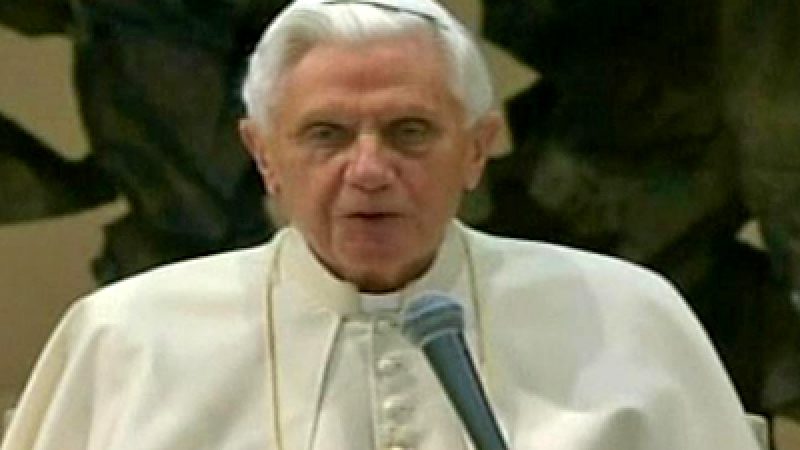
In a new book due out this week, Pope Benedict writes that Jews are not responsible for Jesus Christ’s death.
Excerpts from the second volume of „Jesus of Nazareth“ drew praise from the Jewish community.
But Rome’s head rabbi questioned whether such a declaration was necessary.
[Riccardo Di Segni, Head Rabbi in Rome]:
„I’d say, with the famous words by Shakespeare, ‚Much ado about nothing.‘ I don’t find anything special and clamorous about what he said. He’s simply repeating, and we acknowledge the importance of this obviously, but he’s simply repeating what has been written in the Nostra Aetate declaration, and this declaration is 45 years old.“
In the book, Benedict writes that Jesus‘ accusers were not the „people of Israel in general,“ pointing out that Jesus and his followers were themselves ethnically Jewish.
Reuters Vatican correspondent Philip Pullella explains the significance of the pope’s analysis.
[Philip Pullella, Reuters Vatican Correspondent]:
„What the pope is saying in the book is that it was the Temple Elders who wanted Jesus dead, because he threatened their power, and that is basically it. So, basically he is exonerating the Jews for the killing of Christ, which has been a charge against them that has hurt Jewish-Catholic relations for a long, long time, and was even one of the causes of the Holocaust.“
Benedict has not always advanced interfaith relations.
He was criticized in 2009 for propelling Pope Pius XII toward sainthood, though many Jews believe the wartime pope turned a blind eye to the Holocaust.
Benedict also lifted the excommunication of a bishop who denied the full extent of the Holocaust.
Speaking Sunday at the Vatican, the pope offered prayers for the victims of unrest in Libya and the region.
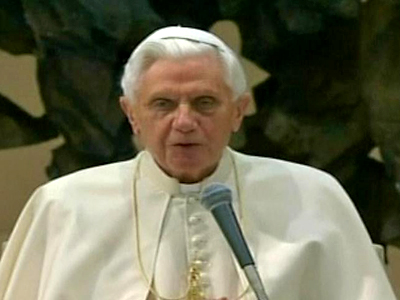 Foto: NTD
Foto: NTD



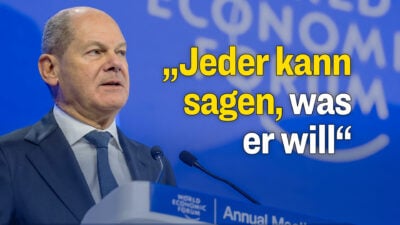
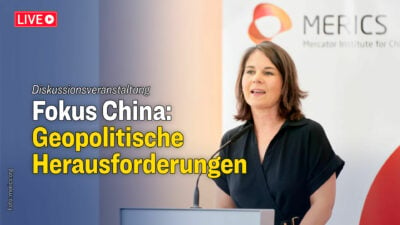



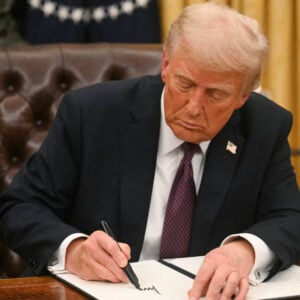





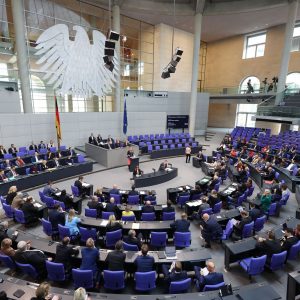





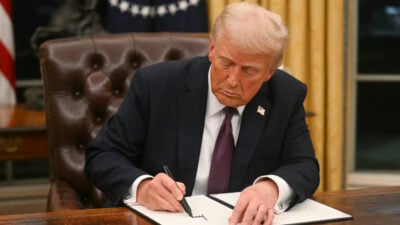






vielen Dank, dass Sie unseren Kommentar-Bereich nutzen.
Bitte verzichten Sie auf Unterstellungen, Schimpfworte, aggressive Formulierungen und Werbe-Links. Solche Kommentare werden wir nicht veröffentlichen. Dies umfasst ebenso abschweifende Kommentare, die keinen konkreten Bezug zum jeweiligen Artikel haben. Viele Kommentare waren bisher schon anregend und auf die Themen bezogen. Wir bitten Sie um eine Qualität, die den Artikeln entspricht, so haben wir alle etwas davon.
Da wir die Verantwortung für jeden veröffentlichten Kommentar tragen, geben wir Kommentare erst nach einer Prüfung frei. Je nach Aufkommen kann es deswegen zu zeitlichen Verzögerungen kommen.
Ihre Epoch Times - Redaktion